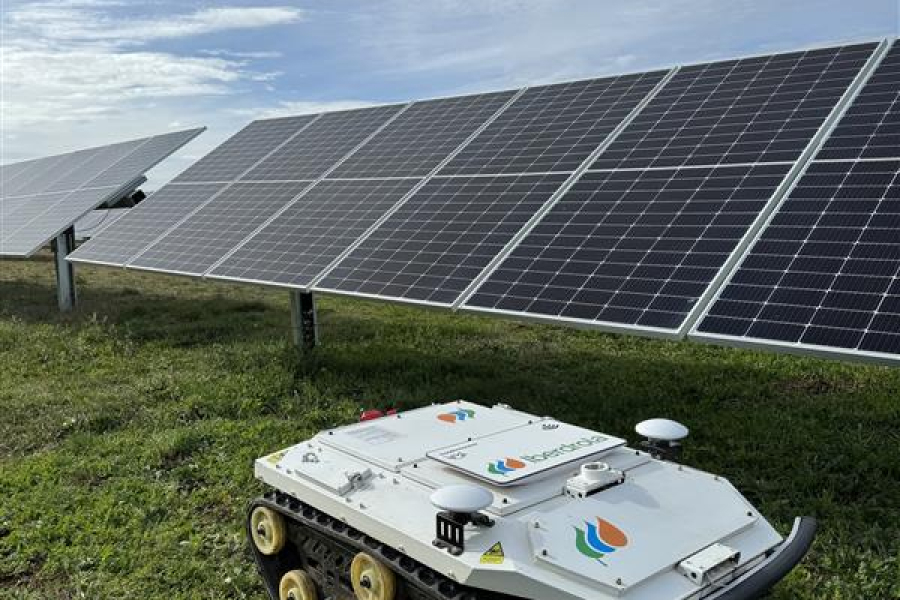Two Iberdrola España solar plants in Murcia and Salamanca receive the UNEF Seal of Excellence for Sustainability
- The Peñarrubia, Murcia, and Villarino, Salamanca, photovoltaic projects have passed the independent audit that highlights their environmental integration and social commitment.

Solar plants Peñarrubia (in Murcia) and Villarino (in Salamanca), developed and operated by Iberdrola España, have become the 45th project to receive the Seal of Excellence in Sustainability from the Spanish Photovoltaic Union (UNEF). This recognition highlights their integration into the environment and their respect for biodiversity and local communities. Following an independent audit, both projects stood out for their good practices in sustainability and the circular economy.
After passing an independent audit, UNEF decided that both projects are integrated into the land in which they are located, with respect for biodiversity and citizenship. The Seal of Excellence in Sustainability was created by UNEF in 2020 to share the best practices of the Spanish photovoltaic industry, reinforcing the commitment of national photovoltaics to a sustainable energy transition.
In that way, UNEF became the first organisation in the world to design its own system for certifying the sustainability of photovoltaic installations, aimed at all companies that may be interested in obtaining it, whether they are developers, builders or owners.
"As an industry, we have always been committed to doing things well, because we firmly believe that our future depends on the peaceful coexistence of our projects, the land, its biodiversity and local people. It’s not only about producing clean energy, but also about adding value that contributes to the sustainability and well-being of the people and the environment where we operate", said José Donoso, General Manager of the Spanish Photovoltaic Union.
About Peñarrubia
The Peñarrubia photovoltaic plant, located in Yecla, Murcia, has the capacity to produce 86,700 MWh/year of clean energy, enough to supply 25,000 homes and prevent the emission of 15,000 tonnes of CO₂ a year. During peak construction, the project created 250 jobs, signing contracts with several national companies, including Gonvarri, Omexon, Garoc, Mesa and Ingeteam. This PV facility has also contributed the first 50 MW to the more than €2 B strategic partnership between the Iberdrola Group and the Norwegian sovereign wealth fund, managed by Norges Bank Investment Management.
Environmental initiatives include conservation measures for the steppe habitat and local fauna. Rabbit roosts and shelters have been built in the vicinity of the plant, and an old farmhouse has been adapted as a roost to protect the lesser kestrel, a vulnerable species. In addition, landscape has been integrated by means of biological corridors with native vegetation that encourage the movement of the species that live in the area.
As part of its commitment to the integration of photovoltaic projects with the environment in which they are developed, Iberdrola España provided the Yecla Town Council with two self-consumption installations that have been placed on the roofs of the municipal swimming pool and the town music school as a sign of the commitment acquired by the company after its first photovoltaic project in the region was commissioned.
About Villarino
The Villarino PV project, located in Villarino de los Aires, Salamanca, has the capacity to produce 85,900 MWh/year of clean energy, which is equivalent to supplying energy to 27,000 homes a year, preventing the emission of 12,000 tonnes of CO2 a year.
During peak construction periods, 250 local jobs were created and several national companies hired, such as JEMA, Gonvarri, Eiffage, Elecnor, Sarpel, Faramax, Mesa and Ingeteam. During the project’s construction, environmental measures were rolled out, such as the creation of a vegetation screen around the solar plant, the installation of wildlife boxes, the construction of fire-fighting walkways and four water tanks to assist forest fire-fighting teams. Forestry treatments and reforestation were also carried out.
